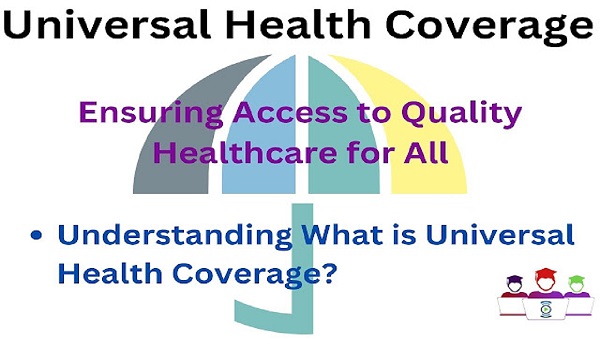The Benefits of Universal Healthcare
Universal healthcare, also known as single-payer healthcare or national healthcare, is a system in which healthcare is provided to all residents of a country, regardless of their ability to pay. This article aims to explore the numerous benefits of universal healthcare and highlight its importance in society.
Improved Access to Medical Services
One of the primary advantages of universal healthcare is that it ensures everyone has access to essential medical services. Under this system, individuals receive medical care when needed, without the worry of financial burden. This leads to early detection and prevention of diseases, resulting in improved overall health outcomes for the population.
Financial Protection
Universal healthcare offers financial protection to individuals and families. In a system where healthcare costs are covered by the government, people are protected from exorbitant medical bills that can lead to bankruptcy or financial instability. This allows individuals to seek necessary medical treatment without fear of the associated costs.
Reduced Healthcare Disparities
By providing healthcare to all citizens, regardless of their socio-economic background, universal healthcare helps to reduce healthcare disparities. It ensures that everyone, regardless of their income level, has access to the same quality of care. This promotes a more equal and just society, where healthcare is a basic human right.
Preventive Care and Early Intervention
Universal healthcare systems emphasize preventive care and early intervention. Regular check-ups, screenings, and vaccinations are provided to the population, preventing the onset of diseases or detecting them at an early stage. This proactive approach to healthcare leads to better health outcomes and reduces the burden on the healthcare system in the long run.
Lower Healthcare Costs
Contrary to popular belief, universal healthcare can lead to lower healthcare costs for both individuals and the government. By pooling resources and negotiating lower prices with pharmaceutical companies and healthcare providers, the overall cost of healthcare can be reduced. Additionally, preventive care and early intervention help to avoid expensive treatments and hospitalizations, further reducing costs.
Improved Public Health
Universal healthcare plays a crucial role in improving public health. With access to healthcare services, individuals can receive timely treatment for infectious diseases, chronic conditions, and mental health issues. This leads to a healthier population, reduced transmission of diseases, and improved overall well-being.
Enhanced Productivity
When individuals have access to affordable healthcare, they are more likely to seek necessary medical treatment and preventive care. This leads to a healthier workforce and increased productivity. Employees are less likely to miss work due to preventable illnesses, resulting in a more efficient economy.

Universal healthcare offers numerous benefits, including improved access to medical services, financial protection, reduced healthcare disparities, preventive care, lower costs, improved public health, and enhanced productivity. By implementing a system that prioritizes the well-being of all citizens, societies can create a healthier, fairer, and more prosperous future.
Frequently Asked Questions
1. What is universal healthcare?
Universal healthcare refers to a healthcare system that provides medical services and financial protection to all
citizens of a particular country or region, regardless of their ability to pay.
2. What are the benefits of universal healthcare?
Universal healthcare offers several advantages:
Improved access to healthcare services for all individuals
Financial protection against high medical costs
Reduced healthcare disparities
Promotion of preventive care and early detection of diseases
Enhanced public health outcomes
3. Does universal healthcare lead to better health outcomes?
Yes, studies have shown that countries with universal healthcare tend to have better health outcomes, including
lower mortality rates and higher life expectancies.
4. How is universal healthcare funded?
Universal healthcare can be funded through various methods, such as general taxation, mandatory health insurance
contributions, or a combination of both.
5. Does universal healthcare mean free healthcare?
While universal healthcare aims to provide affordable healthcare for all, it does not necessarily mean that
healthcare services are entirely free. The costs are typically covered through taxation or insurance premiums.
6. Does universal healthcare lead to longer wait times for medical treatment?
Wait times can vary depending on the specific healthcare system and its resources. While universal healthcare may
lead to increased demand, proper management and allocation of resources can help minimize wait times.
7. Does universal healthcare stifle medical innovation?
Universal healthcare does not necessarily stifle medical innovation. It can promote innovation by
providing a larger pool of patients for research and development, as well as ensuring access to affordable
treatments and medications.
8. Are there any drawbacks to universal healthcare?
While universal healthcare has numerous benefits, some potential drawbacks include increased tax burden, potential
strain on healthcare resources, and the need for effective management to ensure quality and efficiency.
9. Which countries have universal healthcare?
Several countries have implemented universal healthcare systems, including Canada, the United Kingdom, Australia,
Germany, and many others.
10. Can universal healthcare be implemented in any country?
Implementing universal healthcare requires careful planning, and considering the specific social, economic, and
political factors of each country. While it may not be feasible for every nation, various models and adaptations
can be explored to improve healthcare accessibility and affordability.




